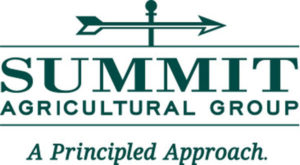 The Michigan Milk Producers Association (MMPA) and Ontario-based Dairy Distillery recently announced a joint initiative to transform a dairy byproduct into what they say will be “the world’s lowest carbon-intensity ethanol.”
The Michigan Milk Producers Association (MMPA) and Ontario-based Dairy Distillery recently announced a joint initiative to transform a dairy byproduct into what they say will be “the world’s lowest carbon-intensity ethanol.”
Dairy Distillery developed technology to transform a lactose-rich dairy byproduct, called milk permeate into vodka, aptly named Vodkow. This high value use of milk permeate caught the attention of MMPA whose Constantine, MI facility produces 14,000 tonnes a year that’s being used for animal feed. Looking to create more value for its dairy farmer members, MMPA partnered with Dairy Distillery to build a plant to process its milk permeate into 2.2 million gallons of ethanol. When blended with transportation fuel, the permeate ethanol will offset 14,500 tonnes of carbon a year. This offset will reduce the carbon footprint of the milk processed at Constantine by 5%.
“I’ve been inspired by MMPA dairy farmers and their commitment to sustainability. Using a milk byproduct to reduce the carbon footprint of dairy is an innovation that will make a significant contribution to MMPA’s net zero carbon emissions goal.” explains Dairy Distillery CEO Omid McDonald.
The $41 million ethanol plant, which is scheduled to start production in early 2025, received $2.5 million in funding from the Michigan Strategic Fund. The project includes the construction of a new, state-of-the-art wastewater treatment system that will produce natural gas to power the ethanol plant’s distillation system, further lowering the carbon footprint of the milk permeate ethanol.












